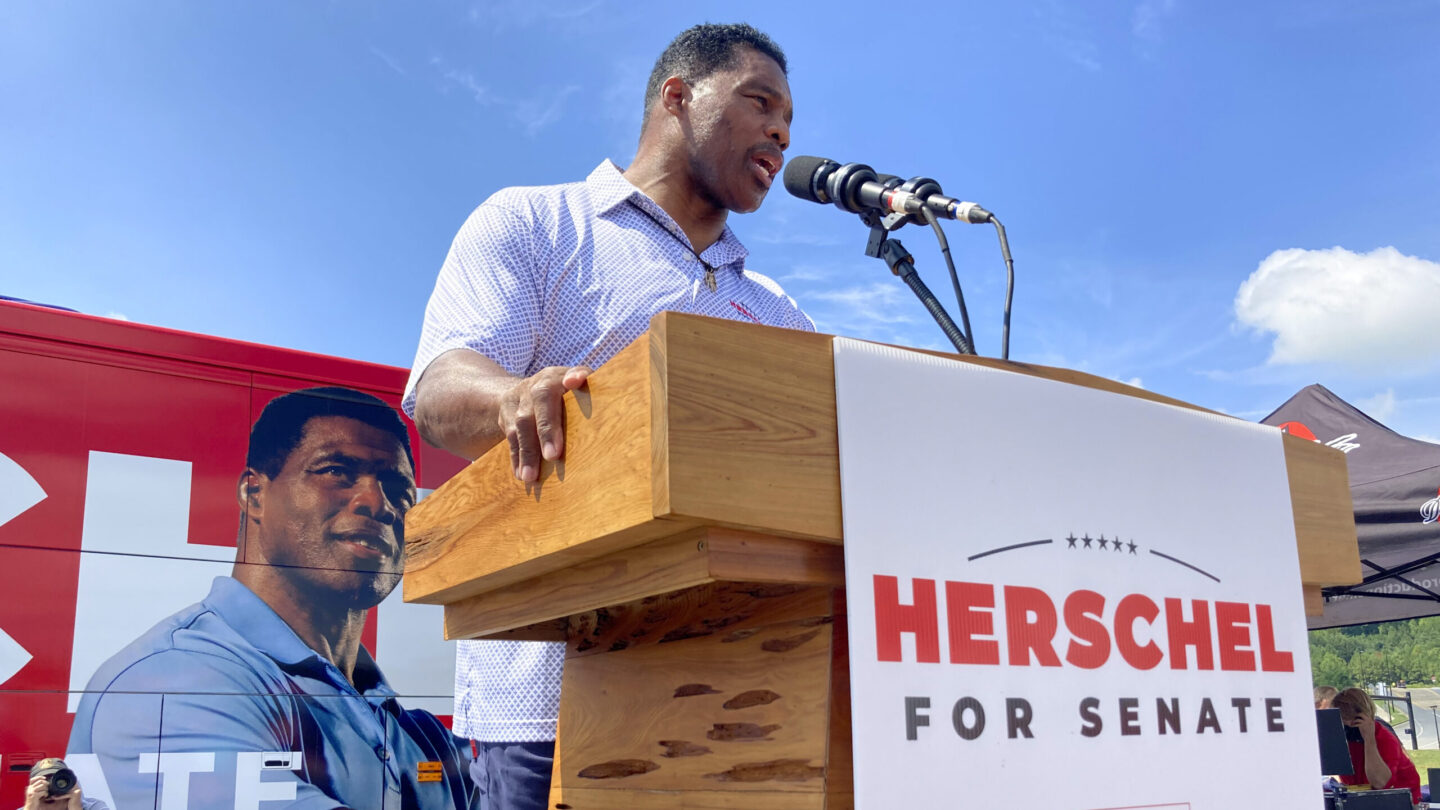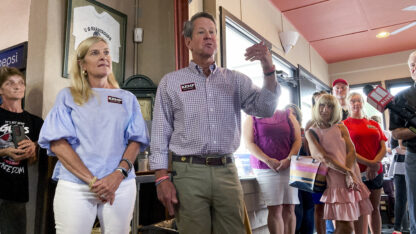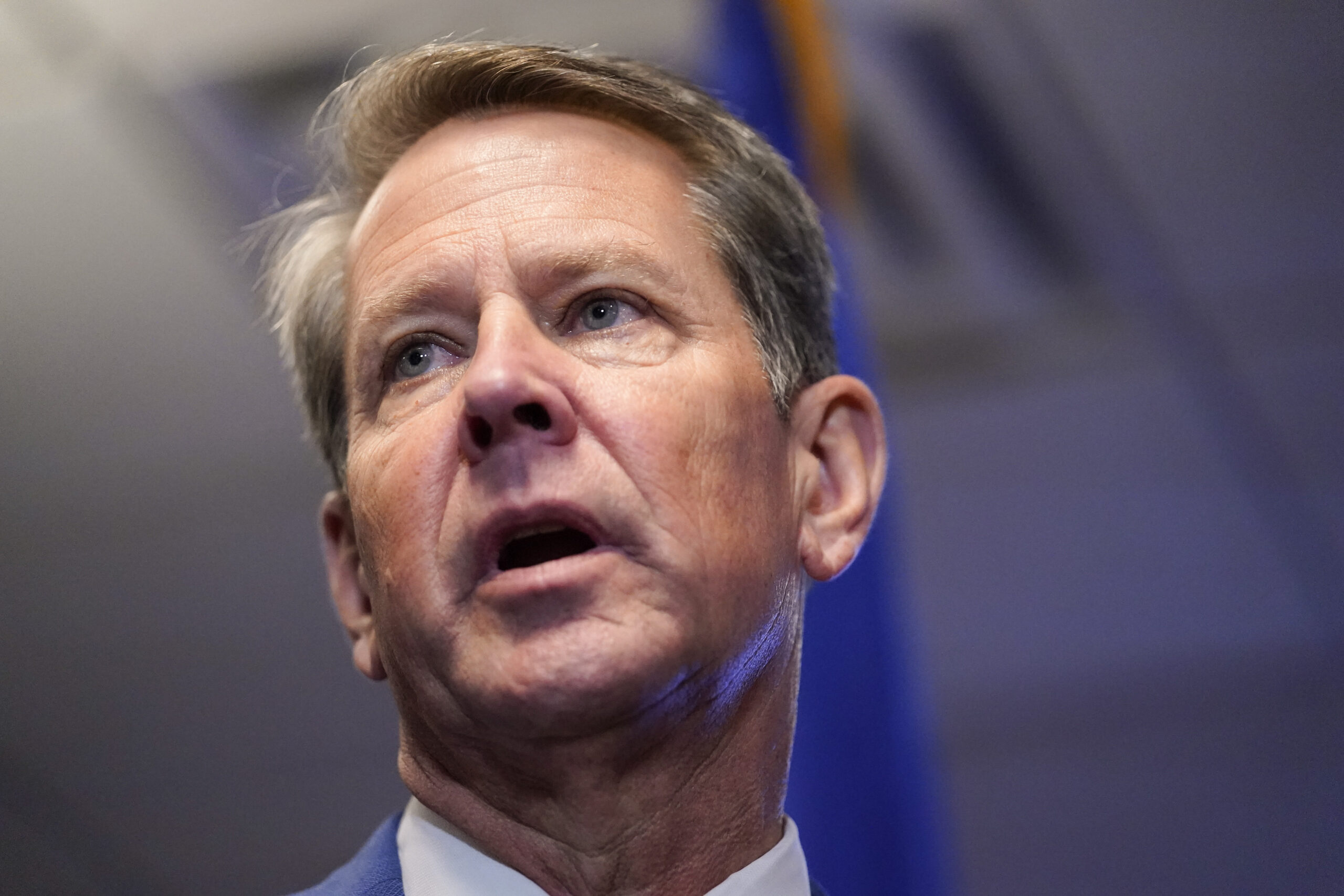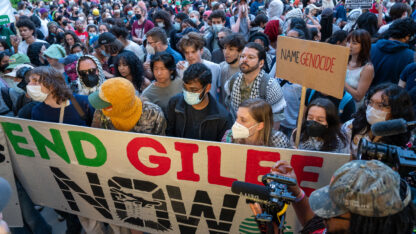Debating over debates: Campaign tradition faces skepticism

Under pressure from his Republican rival, Pennsylvania Democratic Senate candidate John Fetterman said this week he would participate in one debate before the November election.
In Georgia, Democratic Sen. Raphael Warnock and Republican challenger Herschel Walker are still working through the details of what a debate might look like, though they appear to be inching closer to a deal. And in Arizona, Democratic gubernatorial hopeful Katie Hobbs has declined a televised debate with Republican Kari Lake.
With the fall campaign rapidly approaching, the time-honored tradition of televised debates as a forum for voters to evaluate candidates may be the latest casualty of constant media coverage and powerful digital platforms, as well as the nation’s polarized political climate. For some Republicans, eschewing debates is a chance to sidestep a media structure some in the party deride as biased and align with Donald Trump, who has blasted presidential debates. Some Democrats, including Hobbs, have pointed to raucous GOP debates from the primary season as a reason to avoid tangling with their opponents.
Despite such skepticism, veteran political consultant Terry Sullivan defended debates as “the one forum where candidates are forced into answering questions that they don’t want to answer.”
“They’re not going to do it in their TV commercials,” added Sullivan, who managed GOP Sen. Jim DeMint’s 2004 bid in South Carolina and handled media for Florida Sen. Marco Rubio’s 2016 presidential effort. “And in stump appearances, press conferences, they can evade, they can dodge.”
And sometimes, Sullivan added, it’s the media coverage of what happens onstage, rather than the back-and-forth itself, that can make a bigger impression.
In what “should have been the most boring debate in the history of mankind,” Sullivan said that a 2004 panelist questioning DeMint and Democrat Inez Tenenbaum asked DeMint if he agreed with a state GOP platform tenet in opposition of openly gay teachers in South Carolina’s public schools.
“That kind of turned the race on its head for the next three months,” Sullivan said, noting headlines he characterized as “DeMint wants to fire gay teachers.”
DeMint went on to win the open seat by nearly 10 percentage points, a margin typical in recent South Carolina statewide elections. But in more competitive states, Sullivan said, a debate can serve as “a good way to find out where candidates are on the issues.”
In addition to winning candidates thousands of impressions in earned media and repackaged video clips, debate footage can also propel candidates’ messages far more broadly — and cheaply — than could television ad buys, said Michael Wukela, a South Carolina Democratic media consultant and veteran of Vermont Sen. Bernie Sanders’ presidential bids.
“You’re getting that in one shot,” Wukela said, of a debate appearance being worth airtime that would otherwise cost millions. “That’s like a Super Bowl ad.”
Refusal to participate can draw ire from rivals. The Republicans whom Walker refused to debate ahead of Georgia’s primary critiqued him as ill-prepared to take on Warnock, a skilled orator.
“If you can’t get on the stage and debate fellow Republicans, how the heck are you going to debate with Raphael Warnock in the general election?” Latham Saddler, a Navy veteran and former Trump administration official who was among five Republicans challenging Walker, asked. “Usually if you’re hiding, you’re hiding for a reason.”
Walker repeatedly proclaimed his eagerness to face off with Warnock in the fall but, instead of agreeing to Warnock’s challenge to three debates, accepted an invitation to a different one altogether. This week, Warnock said he would participate in that debate, if Walker agreed to another forum Warnock wants. That back-and-forth remains unresolved.
Other Senate contests are playing out similarly.
In North Carolina, where U.S. Rep. Ted Budd skipped four Republican primary debates in his U.S. Senate bid, said Friday he wouldn’t accept an invitation from the North Carolina Association of Broadcasters to debate Democrat Cheri Beasley, as the two head for a presumably close general election. Budd said he had accepted a cable debate invite, but there’s no agreement with Beasley on that appearance.
Dr. Mehmet Oz, the Republican Senate candidate in Pennsylvania, mused to reporters this week about what would happen if voters elected a senator who never has “answered a legitimate question from a voter, from a newscaster in a non-taped setting, in a debate stage?” citing Fetterman’s campaign-trail absence as he recovers from a stroke.
Fetterman’s campaign said he will participate in a televised debate in October but gave no other details, including why he would agree to just one debate. Oz’s campaign immediately dubbed it a “secret debate,” with no details on when or where.
In Pennsylvania’s governor’s race, the Republican nominee Doug Mastriano has rejected a media-moderated debate and instead reserved a hotel ballroom on Oct. 22 and picked a partisan moderator for himself: Mercedes Schlapp, who served as Trump’s White House strategic communications director and is married to the chair of the American Conservative Union.
The campaign of Democrat Josh Shapiro said Mastriano’s refusal to accept an independent moderator blew up about a dozen invitations from news organizations and other groups.
Some incumbents with an edge on their rivals have rebuffed requests for multiple debates, uninterested in taking a risk on stage that might change the course of their campaign.
South Carolina Democrat Joe Cunningham called for four general-election debates with Republican Gov. Henry McMaster, whose campaign dismissed the request as a “stunt” and ultimately agreed to one matchup. In Texas, GOP Gov. Greg Abbott has granted a single debate to Democratic challenger Beto O’Rourke — on a Friday night in the thick of high school football season, which will be broadcast as distracted voters are instead at games kicking off around the state.
Florida Republican Gov. Ron DeSantis initially committed to a statewide televised debate with his Democratic opponent before U.S. Rep. Charlie Crist — who came under fire for not agreeing to primary debates — won his party’s nomination. Now, the two are set to spar in a single debate, shown only on a West Palm Beach TV station.
Michigan Democratic Gov. Gretchen Whitmer and Republican nominee Tudor Dixon finally agreed to a single October debate after a scheduling flap. Whitmer announced last month she would participate in two statewide, televised debates, a decision her campaign said was “consistent with past precedent.” Dixon, who criticized Whitmer for not debating before voter are able to send in absentee ballots, ultimately agreed to the solo meeting.
Noting that the uncertainty of debates can be “terrifying” for all involved, Wukela acknowledged incumbents’ reticence to allowing their challengers prominent opportunities to equate themselves with the office, or its existing occupant.
“Strom Thurmond refused to debate any of his opponents,” Wukela said of the longtime South Carolina Democrat-turned-Republican governor and senator. “If I’ve got a four-touchdown lead, why would I ever throw the ball?”
Associated Press writer Sara Burnett in Chicago contributed to this report.
Meg Kinnard can be reached at http://twitter.com/MegKinnardAP.
Follow AP for full coverage of the midterms at https://apnews.com/hub/2022-midterm-elections and on Twitter at https://twitter.com/ap_politics.








